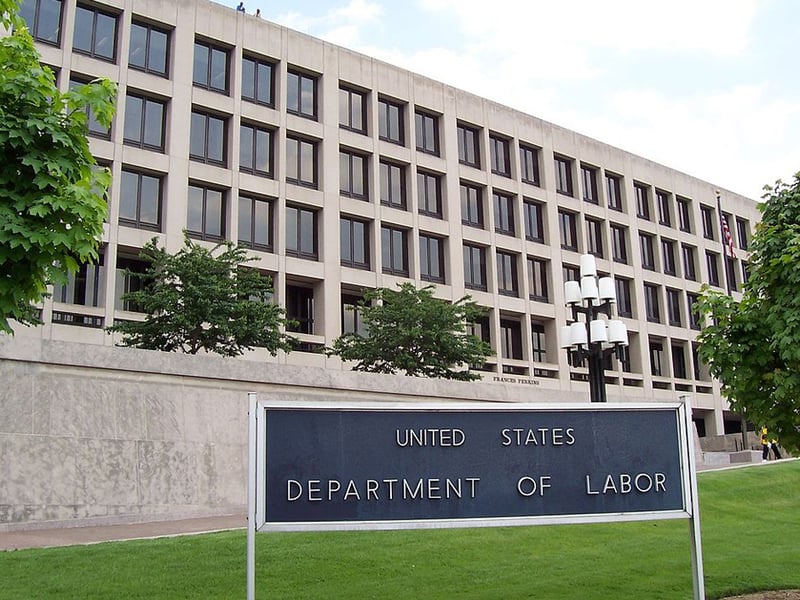

The pooled employer plans, or PEPs, that will emerge next year as a result of the SECURE Act will be rife with conflicts of interest – and the DOL should address that, commenters said in recent letters to the regulator.
But there are stark differences of opinion about how the Department of Labor should do that. Some industry groups and retirement plan providers asked the DOL in letters this week to expand prohibited-transaction exemptions under the Employee Retirement Income Security Act, allowing pooled plan providers, or PPPs, to include various investment products from their affiliates within the plans they oversee.
Others said the existing prohibited-transaction exemptions used within 401(k)s and multiple employer plans are sufficient.
And some, including Ways and Means Committee Chairman Rep. Richard Neal, D-Mass., outright rejected the idea that conflicts should be present in the forthcoming plans.
“No financial institution should be overseeing itself,” Neal wrote.
“During consideration of the SECURE Act, the suggestion that conflicts of interest be permitted was proposed to the Congress on many occasions. This idea was repeatedly rejected as is clear in the statutory language enacted that did not include any exemptions permitting conflicts of interest,” he wrote. “Now, less than six months later, the Department is considering an idea specifically and repeatedly rejected by Congress.”
The comment letters, which were due July 20, were a response to the DOL’s request for information on PEPs. The DOL had asked what entities would be most likely to act as PPPs, what conflicts of interest would exist in PEPs, and whether there should be new prohibited-transaction exemptions to address those conflicts.
The plan type, essentially the “open” MEP design long sought by the retirement services industry, allows unrelated businesses to participate in the same plans. PEPs have been seen as a way to dramatically increase retirement plan access and provide inexpensive options for small and midsize businesses. The plans are also a way for record keepers and investment providers to expand considerably into a largely untapped market.
Conflicts can abound in those plans, as they do in existing employer-sponsored plans, when plan fiduciaries or service providers have some relation to the investment products on the menu.
The defined-contribution record-keeping business is notoriously low margin, and much of what makes it attractive to large financial service companies is the ability to distribute their mutual funds, collective investment trusts, annuities and managed-accounts services.
In his letter, Neal alluded to “conflict-free arrangements” in MEPs that “are actively being adapted to form conflict-free PEPs, which become effective in 2021.”
The Securities Industry and Financial Markets Association had a different take, writing that a new prohibited-transaction exemption is necessary to “expand the number of providers able to offer these programs so that there will be a robust range of banks, record keepers, broker-dealers, mutual fund providers and insurers.”
Such firms would offer “helpful innovations,” Sifma’s letter read. “These firms have substantial expertise in trust services, collective trust offerings, separately managed accounts, mutual fund offerings, annuity arrangements, cash management services, bank deposits, laddered bond arrangements and other investment products.”
Many commenters referred to the existing prohibited-transaction exemption for ERISA retirement plans, PTE 77-4.
The DOL “recognized that it was not commercially reasonable for an employer who wants the products and services of Company X to find a provider other than Company X that offers that particular combination,” Sifma wrote.
One MEP third-party administrator, American Pension Services, said in its letter that appointing independent 3(38) fiduciaries to draft investment policy statements and select and monitor plan investments would help address potential conflicts.
Another firm, Paychex, wrote that new exemptions are unnecessary, as “there is no reason why the PEP provider community would be unable to draw upon the SECURE Act and already well-established principles for avoiding otherwise prohibited conflicts of interest.”
Numerous other comment letters were sent by groups including the American Retirement Association, the AARP, the Insured Retirement Institute, American Benefits Council, the Spark Institute, National Association of Insurance and Financial Advisors, Morningstar, BlackRock, Empower Retirement, Fisher Investments and Transamerica.

The Wall Street giant has blasted data middlemen as digital freeloaders, but tech firms and consumer advocates are pushing back.

Research reveals a 4% year-on-year increase in expenses that one in five Americans, including one-quarter of Gen Xers, say they have not planned for.

Raymond James also lured another ex-Edward Jones advisor in South Carolina, while LPL welcomed a mother-and-son team from Edward Jones and Thrivent.

MyVest and Vestmark have also unveiled strategic partnerships aimed at helping advisors and RIAs bring personalization to more clients.

Wealth management unit sees inflows of $23 billion.
Orion's Tom Wilson on delivering coordinated, high-touch service in a world where returns alone no longer set you apart.
Barely a decade old, registered index-linked annuities have quickly surged in popularity, thanks to their unique blend of protection and growth potential—an appealing option for investors looking to chart a steadier course through today's choppy market waters, says Myles Lambert, Brighthouse Financial.
